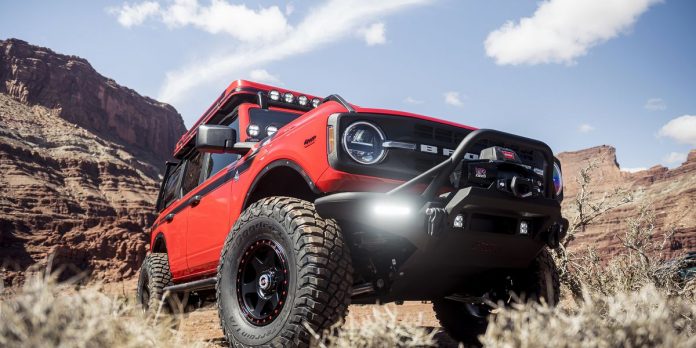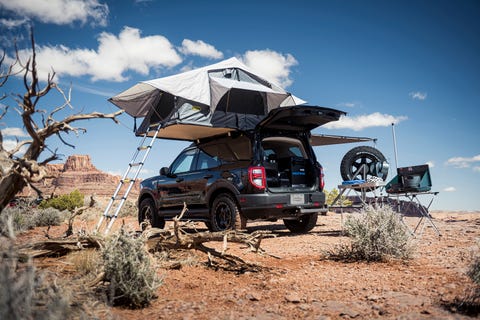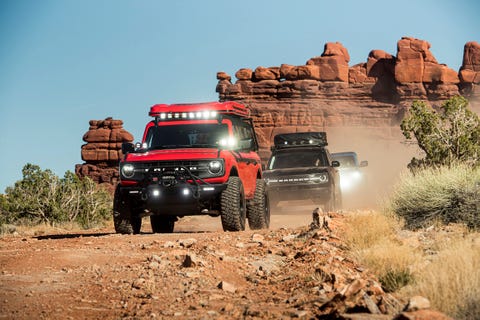The Ford Bronco and its smaller Bronco Sport sibling have captured a massive fan base since their market debut. Of course now that we are starting to see these things around regularly, owners are embracing the accessory market. In fact, customers of the full-size Bronco are reportedly spending an average of $1700 on official Ford parts, with more than one million accessories sold between the two models.
According to an Automotive News report, Ford executives say that the Bronco is currently the most customized product in the automaker’s portfolio. The Bronco Sport isn’t far behind, as its customers spend an average of $800 on parts from Ford’s own catalog. That figure puts the Bronco Sport right in line with the all-mighty F-150 as far as customization dollars are concerned.
Warn, Yakima, Others Supplying the Goodies
It can’t hurt that Ford has tailored a massive collection of parts for the Bronco and Bronco Sport with help from some of the biggest names in the automotive aftermarket. The automaker knew how important modifications are to the off-road community, and it worked with well-known companies like Warn and Yakima to create these components before the trucks even debuted.
Customers can even spec the accessories they’d like to have on their truck right from the dealer before the truck arrives. This has created something of a lucrative business model for certain dealerships. Take Steve Olliges’s Team Ford dealership in Las Vegas, for example. Customers at this dealership spend an average of $4000 to $5000 on Bronco accessories with every purchase. The most popular parts that customers order across the board are the modular front bumper, winches, and off-road lighting elements.
“It’s core to the success of Bronco,” Ford consumer marketing manager Mark Grueber told AN. “For dealers it’s a great opportunity not only from a profit standpoint but also long-term engagement with customers. It’s a great proof point of what Ford can do and how big this opportunity is going forward.”
The success of the Bronco accessories program is multifaceted. First, the SUV was designed to enter a segment rife with customization needs and featured its own parts development cycle running concurrently with vehicle development. Second, Ford reworked its entire accessories distribution network to better serve dealer needs.
By changing up the companies involved in the distribution, Ford has been able to cut back on wait times and improve inventory content. With more Bronco models continuing to roll out, one can expect the parts catalog to continue to grow as well. Not that anyone seems to be complaining about the current offerings.
This content is imported from OpenWeb. You may be able to find the same content in another format, or you may be able to find more information, at their web site.



